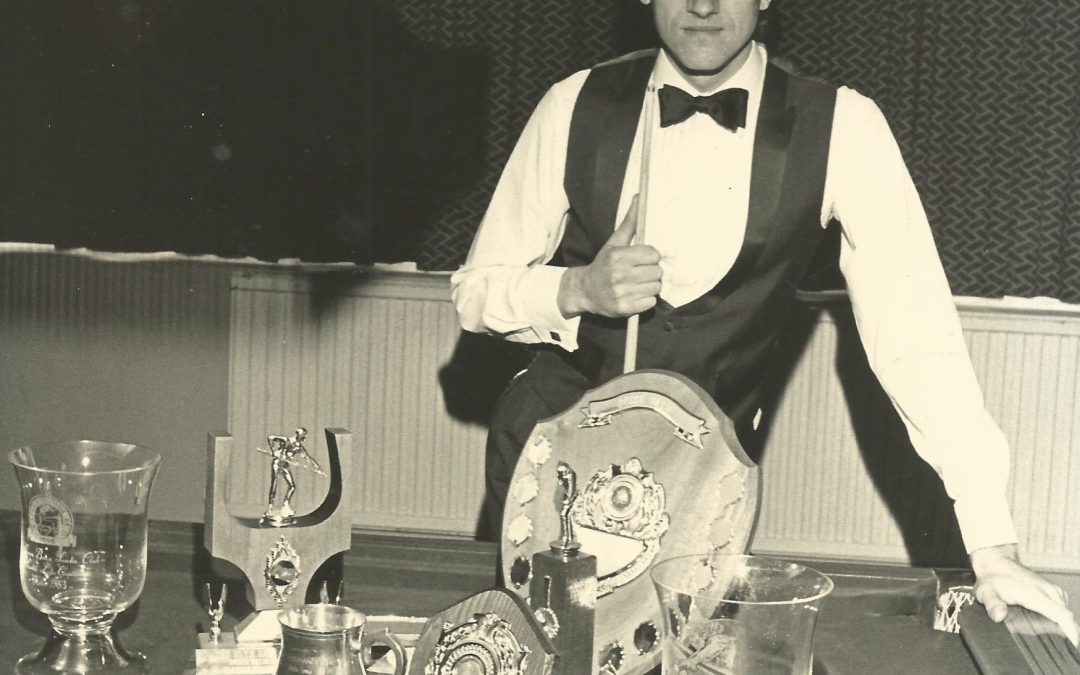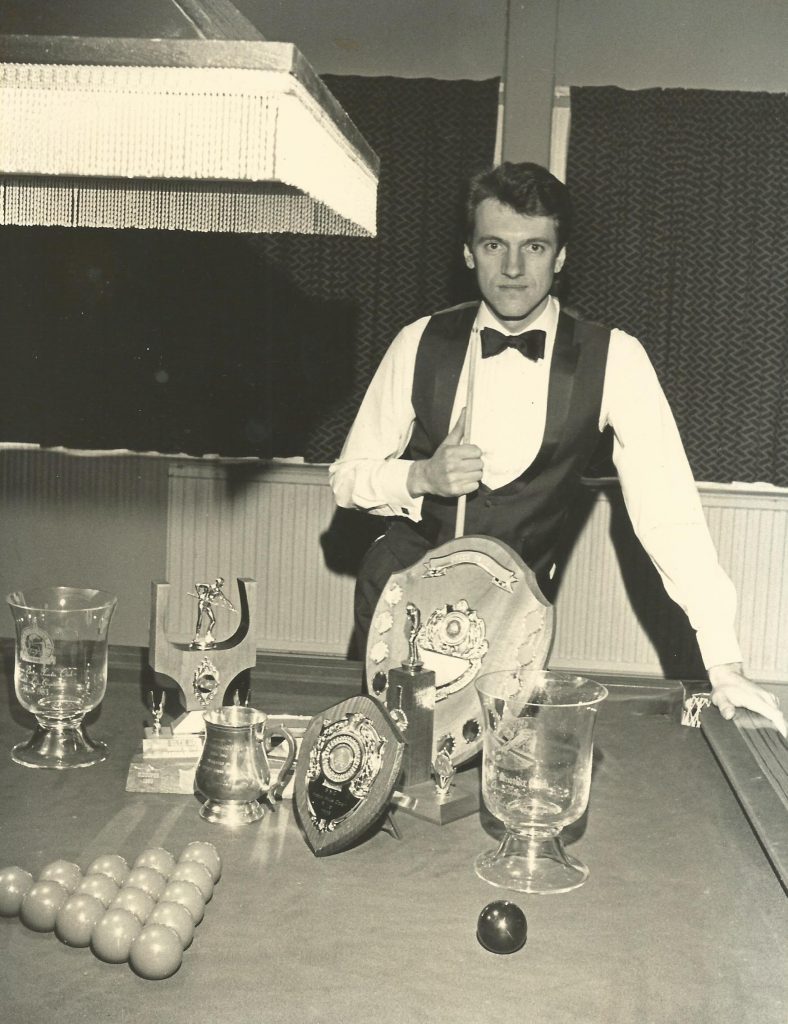
by Dave Cooper | Aug 15, 2018 | A2R, Building Recovery, Method
 I have been very busy recently filming my online course (Building Recovery) and finishing my book (of the same name). So I was wanting to get back to writing my Blog and thought to myself “what are the core principles that inform all my work with clients who want to recover from addictive lifestyles”? So I wrote down everything that informed my work, basically things that I would not contradict or stray from in any situation.
I have been very busy recently filming my online course (Building Recovery) and finishing my book (of the same name). So I was wanting to get back to writing my Blog and thought to myself “what are the core principles that inform all my work with clients who want to recover from addictive lifestyles”? So I wrote down everything that informed my work, basically things that I would not contradict or stray from in any situation.
This could be valuable to you in your striving for recovery for two reasons. Firstly because I believe these principles are valuable for everybody, not just for addicted people. This is because, like all the rest of my teaching are about personal growth. Secondly because they will provide an overview of how I have learned to approach this work. So reading about them will help you to understand the coherence in this approach. How it all fits together as a useful whole. This will help you to understand why I sometimes suggest certain things that might not be obvious to you.
So these are the principles my recovery building stands on. If you include these principles in your recovery they will provide you with the best foundation and serve you well.
The Core Principles
So what are the core principles? What is it that I could not do without in this work? You will notice a theme in the following list. It is a theme that speaks to my beliefs and experience over the last thirty years.
The only way authentic recovery is to outgrow your problems
My belief is that you cannot recover by improving yourself in the place you are in. You must outgrow your difficulties. You must be lifted higher. Psalm 40 says “I cried out to you in my distress and you inclined you ear to me. You lifted me out of the miry clay and placed my feet upon a rock”. Here is a list of things that will be part of this series.
1 – Harmony
No I’m not offering singing lessons! Although the way music works in creating a beautiful chord through different harmonising notes is a great start. So the actual principle here is something like ‘stay on your good side’. So this is about inner harmony not outer harmony (often confused). The reason it makes it onto my list of core principles is because we simply cannot move (grow) whilst we are in disharmony.
2 – Isolation
Yes I know, we always knew that isolation was bad! The point here is that all the most recent research is showing us that it’s even worse than we thought. So the principle here is something like ‘develop relationships with living things (people preferably)’. Coming out from isolation (inside) is one of the most challenging things we can do and so it needs preparation and a deep level of acceptance that tings like this are journeys ‘aims’ rather than quick fixes.
3 – Growth
When we are threatened one of the most common aspects of our survival strategies is to stop growing. To avoid challenges and to ‘shut down’. Addiction becomes one of the ways we can do this and develop a ‘Groundhog day’ type of life. It makes sense then to see recovery as a reversal of this process. So the principle here is something like ‘have the right aims’. So often addicted people start with the latest problem such as “I have no money” or “I need to stop taking drugs”. These are usually ‘post addiction problems’ when we should be concentrating on the ‘pre addiction issues’.
4 – Self management
My work in this field took a huge leap forwards when I took on board the complex nature of being a human being! I often remind my clients that when we say ‘I’ we are using a complex statement! So the core principle here is something like ‘you are always working with what is between your ears’! To start using our daily experiences and challenges to grow into our recovery we need to understand what is happening during difficult moments and the relationship between our brain and our mind.
So there it is. Take the time now to study the episodes in this series. Starting with number one HARMONY.
 HARMONY
HARMONY
Let’s start with a definition before we go on to talk about why it’s such an indispensable part of authentic recovery. Harmony is defined as ‘the combination of simultaneously sounded musical notes to produce a pleasing effect’. Cambridge Dictionary.
It’s this idea of difference in the sounds that is so important. Notice that harmony is not lot’s of same sounding notes. A bunch of ‘E’ notes may make a nice sound bit they do not make a chord.
If you have been thinking of yourself in the most obvious and simple way then your behaviour and thoughts will often make you feel crazy! Every time you contradict yourself in your behaviour speech or attitude you will be wondering “how crazy am I, I mustn’t let anyone know”. Let me reassure you. Contradictory behaviour does not mean that you are crazy! It’s a matter of understanding how complex you are.
I would say that ‘I’ is shorthand. Short and convenient for everyday life. “I did this” “I want that” makes sense. But this is not sufficient for a rich understanding of what it means to be human. In order to manage yourself well and grow into a full recovery you must start to take into account the fact that you are a complex package of different, sometimes contradictory ideas or ‘parts’. Did you ever say “I’m in two minds about that”. Or “there’s a part of me that just won’t let go”. These are examples of this complexity. You are going to learn how to first take this complexity into account and then use it in your recovery journey.
Team YOU!
A great team creates a great harmony. Look at this picture. Imagine if they all turned up and wanted to paint the boards. Nothing would be achieved. Of course they all have the same ‘big picture’ but it is the harmony created when all the different skills are used to achieve an agreed upon goal that makes them a great team.
Conflict
I want to talk about what happens when you think too simply about yourself. You have an aim in your mind, which is to stop drinking let’s say. So far so good. At some point other thoughts turn up. Thoughts that say ‘why bother. No one will appreciate it’. or ‘No one will know if you drink on your own’. You can add some of your own. The point is these thoughts are not in agreement with your intention to stop drinking. Did you ever ask yourself why would such thoughts exist? If you have decided to do something why would you not be completely behind this decision?
Internal opposition to our own decisions in the form of temptation and compulsion, fear and selfish need are so common in our experience that we stop questioning the reason for these opposing ideas or think about why they exist. Often our reaction to these voices is to fight them.You feel a pressure to appear ‘normal’ and so try to bully or hide these things so as not to appear strange or abnormal.
One more reason we avoid doing something about this state of affairs is that we are much more focused on what can be seen than what is hidden from view. Trust me on this one little thing, it is the things that are hidden from view that are the most important and that will offer the most potential for growth and change.
Stop fighting
In the fourth episode in this series (self management) I will go into more detail about the nature of these ‘voices of influence’ but for now let’s stay with this theme of creating harmony through removing conflict. When we take the ‘fighting’ option we are led into conflict, but it’s okay because it’s conflict for a good reason, right? There are so many articles and books about how to win and how to be strong and how to fight that you may think of it as an obvious thing to do. So you try to banish the negative thoughts or to aggressively replace them with ‘positive affirmations’.
Sound like you? Let me ask you something, did it work? The fact that you are reading this is pretty good evidence that it didn’t. Let me tell you something. If you want these inner negative voices to get stronger, keep exercising them. It’s your resistance to them that is making them stronger. You need to harmonise not argue.
Don’t make the mistake of confusing your relationship with yourself with your relationship with others. These books are mainly talking about our relationships with others not ourselves. It may seem obvious to you that the same approach will work for the relationship with your self. It won’t. You see I fully agree that conflict and it’s resolution is the key to personal growth (in our relationships with others). Please click this link for my take on this. But your relationship with yourself needs a different approach.
So in relationships with other people difficulties are good. The problem is that things are very different on the inside. When it comes to yourself conflict is not the way forwards. I always remind my clients that “Your mind runs your life…. on licence from your brain”. So when you are dealing with any ‘part’ of you are dealing with a child. But a child that is much stronger than you! Overpowering it is not an option! Remember your brain can shut down your mind but your mind cannot shut down your brain!
Acceptance – the key to growth
I want to talk about a word now that has got an increasingly bad press lately. Acceptance. You know acceptance is a fantastic thing! It is the key to personal growth and development, improved relationships and greater effectiveness. But it has become known as a bad thing. Somehow we have managed to turn one of the most valuable things in our resources into an unclean unwanted thing. It is now thought of as something akin to a doormat. “I suppose I’ll just have to accept it” is nothing more than a sad sounding capitulation to our modern ears.
I want you to know that acceptance is one of the most valuable materials you can build your recovery with. Let me tell you why it is so valuable by telling you what acceptance isn’t! Acceptance isn’t agreement. When we accept something we are not saying we agree with it. We are not saying it is correct. Or that it’s permanent. Not that we don’t want to or can’t do anything about it. We are simply saying that it’s real.
You should accept something because it’s real.
The power of acceptance is felt once we have accepted something. You don’t overpower it, you don’t destroy it. You don’t disprove it. And yet, somehow you get past it!
Acceptance versus knowledge
If you have viewed my post on this subject you will have more detail by now but I still want to say something about the difference between just knowing something and truly accepting it. Knowledge is a concrete thing. It can be a block to change in it’s brutal presence. we can hate something that we know is true but we can’t change it! Acceptance is much deeper than knowledge. It is a spiritual thing not a scientific thing. When we know something we cannot change it, when we accept something we transcend it! The alcoholic who ‘knows’ he is alcoholic carries on drinking. The alcoholic who ‘accepts’ he is alcoholic stops drinking. You will see very different behaviour resulting from acceptance than from knowledge.
When I run my workshops I show an image of two men wrestling. I ask the participants to tell me what is happening. They tell me that there are two men wrestling, not surprising right? I tell them to look again and see two men who are stuck together. Neither man can leave, move, or grow whilst they are still wrestling! Again this is not about agreement or being stuck with something. It is about being free of something!
I want you to start practising acceptance as a way of life. Try saying to yourself “just for right now, this is how I feel” and “just for today, this is what is happening”. Try “I accept that I just thought that” and “I accept that a part of me does not want to stop”. Look for changes in your behaviour and different reactions to situations as you develop this acceptance habit. Remember you are not trying to change your behaviour, that just gets you back to fighting. Changed behaviour is evidence of a changed relationship with yourself.
What would your last words be?
If you had one chance to say something valuable to those you love. Only one chance to leave a thought with them that would be the last word, the last opportunity to offer advice. What would it be? What is the most important thing you could say to someone? If there was one last chance.
This was the position Jesus was in on the night he was to be crucified. His words to us are found in John 17. He first prays for himself and then following prayers for his disciples he prays for you and me! Yes, all that will follow, that’s us! So what is this last prayer. What is it that Jesus himself knows to be the most important thing he can leave us with. The most important thing to pray for. Is it that we should build great big churches? That we should convert millions? Or it that we should raise large sums of money? It is none of these things. It is harmony. Harmony is his prayer for us.
Now I have heard this harmony preached and taught as harmony between us as people but this is not what is meant. Listen to Jesus words as he describes the harmony or unity he is talking about “that all of them may be one, Father, just as you are in me and I am in you. May they also be in us so that the world may believe that you have sent me”. He is talking about internal harmony. He is talking about our relationship with ourselves. Let me give you one more example.
In Mark 3:25 Jesus says 25 If a house is divided against itself, that house cannot stand. Again this is often taken to mean the Church or our relationship with others which of course is important but listen what He says in the next verse. 26 And if Satan opposes himself and is divided, he cannot stand; his end has come. Clearly placing his words in the context of personal harmony and unity.
Whether you are a Christian or not, these words are a powerful reminder of the importance of personal harmony.
Be a good friend to yourself
One last word on internal harmony. Be a good friend to yourself. I know what it’s like to hate yourself. When I first got clean I couldn’t look at myself in the mirror to get a decent shave. To create inner harmony you have to be a good friend to yourself. You will not be effective in anything you try to do as long as you are not helping yourself. No matter what you have done or said. No matter how wrong it was. Accept it. I am not suggesting that you not be responsible for yourself I am suggesting that you take the best stance to grow out of it.
Here is a simple method you can try to get around self hatred. Imagine a family member or best friend telling you their problems. Except they are telling you your story, exactly the same as your experience. What is your advice for them? What would you say? Now act on that advice yourself, no matter how difficult or awkward it seems. You have just tricked yourself into giving you your best advice!
I will be doing three more episodes on this subject of core principles. Speak soon

by Dave Cooper | Aug 3, 2017 | A2R, Method
Calling something good that is harmful to you
 This is the third article in the series – Addiction as an inappropriate relationship. In this final post we will be looking at one of the worst aspects of the inappropriate relationship. Namely that it looks good but is really bad. Inappropriate relationships are always presented as something good healthy or wholesome. In fact it is one of the most insidious things about them.
This is the third article in the series – Addiction as an inappropriate relationship. In this final post we will be looking at one of the worst aspects of the inappropriate relationship. Namely that it looks good but is really bad. Inappropriate relationships are always presented as something good healthy or wholesome. In fact it is one of the most insidious things about them.
Always connected with something desirable like love or spiritual enlightenment, inappropriate relationships are at best cheap imitations of these things. Deliberately harmful and deceitful, they lead the innocent into damaging and abusive places.
The worst inappropriate relationships always involve the innocent or vulnerable. Young people who are easily tempted with things they cannot get for themselves like a ride in a car or a bag of sweets. Addiction is similar in that the temptation is always about now! So it appeals to the child in us. It always offers instant gratification. There is never any thought or promise for the future, only now.
Big picture versus little picture

Large Cinema screen

Small picture view
This one of the methods I use frequently with my groups. The idea of small and large ‘screens’ as a way of understanding how you are ‘seeing things’ right now. It’s also one of the main reasons why personal growth, development and maturity are the answers for you as an addict. The more mature you become the more your view is ‘big picture’ not the ‘small picture’ of a child.
If when the temptation of this inappropriate relationship came you could summon up a picture even a tiny bit bigger than ‘right now’ you would be very likely to say NO THANKS. Even considering tomorrow morning would probably be enough, but in the past this has been beyond you. Your addictive relationship is only attractive in the ‘right now’ of the ‘small picture’ view.
Avoiding the ‘quick fix’ by changing your ‘screen’
Of course there are times when it is appropriate for you to go the other way and I teach this in the group I run. Ask yourself now is your problem in the past, future or present? Where is the thing that is making you feel bad? If it is in the past or the future it is a ‘big picture’ problem and you must shift to a ‘small picture view’. You do this by bringing yourself into the moment and asking yourself “what am I actually doing right now”? If it’s making a cup of tea, then make the best cup of tea you can and concentrate on it. Small picture!
If your issue is in the present then you must shift to a ‘big picture view’, in which you will feel better and gain some perspective. This is why when you are first presented with the substance that later leads to addiction it appears to be the perfect answer! Instant bliss! You can be transported to a place that has no problems or bad feelings associated with it for just a little money. As long as your health and money last you really have what appears to be the perfect solution to your issues. The perfect answer but only in a small picture view!
I was no different from you in my youth. I felt terrible and the thought of drinking and smoking weed gave me an instant ‘brain shift’ and better feeling. As I got older it was worse! Now I wanted to feel good not only without earning it, but in spite of all the wrong things I was now doing! So because you are doing the same this means that your ‘perfect’ answer is now somewhat more tarnished than when you were young. But it still offers you a powerful relief from the bad feelings you have.
Defining the appropriate relationship
We hear so much about the inappropriate relationship these days. A simple search on the internet brings up heaps of material on Teacher – Student relationships, incestuous relationships, as well as the more common extra-marital relationships.
The more subtle forms of inappropriateness such as the controlling partner and the psycho boss are harder to find but are still plentiful if you search a bit harder. When it comes to things that are more challenging to define such as manipulative friends and people who are over keen to be in the spotlight of leadership or be ‘running things’ there is a lot less information. It is here that the boundaries get a little blurred.
What if we started at the other end? What if we started by defining what makes an appropriate relationship? This is problematic because it is much harder to generalise around health than it is around the unhealthy. Here are a few things that appropriate living relationships include. Along with some links to further reading.
Equality – except where the power differential is written into the relationship such as counselling or a work hierarchy.
http://www.goodtherapy.org/blog/relationship-fairness-what-a-50-50-balance-means-0826134
Dignity – Allowing the other personal agency and a freedom to make their own choices.
https://www.psychologytoday.com/blog/dignity/201304/what-is-the-real-meaning-dignity-0
Boundaries – Appropriate relationships have boundaries that are well formed and understood.
http://www.sharonhersh.com/2015/06/what-is-an-inappropriate-relationship/
Recovery as an appropriate relationship!
When you make a decision to move towards recovery, you are saying that you want all your relationships to be healthy, have good boundaries and able to grow and develop! You will understand the unhealthy nature of the relationship you have with your substance/behaviour much better after reading this series of episodes on the inappropriate relationship .
I have an appropriate relationship with poison. I avoid it! Of course developing more healthy relationship with your substance or behaviour of choice also means developing your relationships with those around you. If your friends, work colleagues, or even your family are using and constantly tempting you towards these substances or behaviours you must consider placing strong boundaries in these relationships, or at the very least strong time constraints. I am not saying it is as simple as saying no! I have written extensively on how we develop a better relationship with our ‘drug of choice’.
Looking at your part
We have been talking so far about the idea of inappropriate relationships with you as the victim and the substance or behaviour as the perpetrator. That’s how it feels a lot of the time as you are extremely vulnerable once you are in an addictive pattern. It’s far too simple to see this relationship that way so now we need to look at your part in this unhealthy relationship.
It is important to realise that you are the abuser, not the substance. That’s why they say you are ‘abusing substances’. I want to take alcohol here as the typical example. It works well as an example as it has an accepted social use and is legal. As well as this it was my ‘drug of choice’ and so I do speak from experience!
Think about a friend or neighbour that you have and you need to borrow something or ask them a favour. Fine, they are okay with it. But now you ask again, and again, and again. You can see where this is going. Even the most patient and giving person is going to get to the end of their patience as you continue to abuse the relationship. I used alcohol beyond it’s socially accepted use and this is what happened. I abused the friendship and I lost it!
Developing better boundaries in all relationships
“When all your relationships with everything and everyone around you are healthy, or are becoming healthier, you are recovered”. I use this definition of recovery a lot and find it very useful in supporting people when they are reflecting on the way forwards for themselves. It locates the issue inside the ‘relationship’ rather than inside themselves or others. Ultimately it is what we make together that forms our world and our experience.
Try this exercise now. Think about specific relationships. With things as well as people. How could you make that relationship more healthy? I often advise looking for 5% improvements rather than going for broke! Now think about how you might go about that improvement. Remember, they don’t have to do anything or say anything to make this work. It all comes from you!
Of course we all must have relationships with inert things, such as sailing, football, television etc. But we are not ‘bonded’ with them! Always try to maintain healthy boundaries around them. I hope this series of articles has helped you to evaluate your relationships and given you a way of thinking about your addiction that offers a way forward. Thank you for taking the time to read this.

by Dave Cooper | Jul 28, 2017 | A2R, Theory
Looking for something from a relationship it cannot give you

This is the second of three posts where we look at addiction as an inappropriate relationship. Why deepening a relationship with a ‘dead’ or inert thing is so tempting to some and what is fundamentally flawed with the concept as a strategy.
In the first post we looked briefly at the general problem with ‘bonding’ with ‘dead’ or inert things. In this episode we will look more deeply into the frustration built into such relationships. What I have come to call ‘The addictive trap’. So you will learn about how you have set up a trap when you ask for something from a relationship that it does not have to give.
“What you need it can’t give you”
So your problem is now becoming obvious. You are addictively involved with something that is not alive! It is inert or dead if you prefer. Your temptation and vulnerability at this point is clear. All the threat is coming from living things.
All your difficulty is with living things. Living things disappoint you. Living things change. Living things question you. Living things look back at you when you look at them. Living things ‘see you’, maybe they judge you. Sometimes they are disappointed in you. Living things hold you to account on things you said you would do.
Your substance/behaviour does not question you. Your substance does not argue with you. Your substance is consistent. You can deepen your relationship with the substance without any threat of greater vulnerability or exposure. Your substance/behaviour does not examine you or judge you. It never questions your decisions, your wisdom or your intelligence.
So this makes it clear why you have been tempted into this relationship and invested more in at than you should. But there is one thing I have not mentioned and that made all the difference! Your substance/behaviour makes you feel better! Like an old friend you look forward to meeting up again. It can feel exciting to think about another encounter. Often your ‘living’ relationships do not seem so exciting. They have often left you feeling worse not better. Once an episode is over you have often felt worse (hangovers, withdrawals, the state of your bank account etc.). But that is easy to blame on yourself, not the relationship. It’s your shame, your problem. But ask yourself now. If any living person left you in this state, would you continue in the relationship?
Understanding the trap you are in
 When you become dependent or addicted to something you have entered a trap. Everyone would recognise that, but what kind of trap is it? The basic understanding of the trap is that you have started doing something or taking something that is ‘addictive’. In other words the thing itself has the quality of addictiveness. Have you heard yourself say “that thing is soooo addictive”. There is no doubt that things, particularly things that have been designed as such, like cigarettes and internet gaming are ‘moreish’. One of the biggest, television, has had us as a culture for a long time.
When you become dependent or addicted to something you have entered a trap. Everyone would recognise that, but what kind of trap is it? The basic understanding of the trap is that you have started doing something or taking something that is ‘addictive’. In other words the thing itself has the quality of addictiveness. Have you heard yourself say “that thing is soooo addictive”. There is no doubt that things, particularly things that have been designed as such, like cigarettes and internet gaming are ‘moreish’. One of the biggest, television, has had us as a culture for a long time.
But this is a very limited picture of the trap you are in. I want to help you develop that understanding now by saying firstly that this trap does not only include what is in the substance or behaviour. You are in relationship. That means you are playing a part in what is made between you. To understand the trap you are in you have to include yourself in your picture.
The real nature of the addictive trap is the way you have to keep using because that elusive state didn’t happen. You have to keep looking because you didn’t get what you were promised, but maybe it will be in that next photograph? You didn’t get that contract, that big win. The thing that would really do it for you never turns up.
When the problem and the solution become the same thing
 it is at this point that the problem becomes very real. The addictive trap is not really ‘felt’ until the solution to your problem becomes the very thing that produced the problem in the first place! This brings us to one of the best definitions of addiction.
it is at this point that the problem becomes very real. The addictive trap is not really ‘felt’ until the solution to your problem becomes the very thing that produced the problem in the first place! This brings us to one of the best definitions of addiction.
When your problem and your solution become the same thing.
Wanting something for nothing
You got into this trap because you believed you were getting something better than what you had. There is a good chance that you mistook it for something deeper, even something spiritual. In fact it was something much more shallow. Real connections with life are challenging and stretch us by their complexity and uniqueness. This relationship produces ‘brain chemicals’ that can seem to be profound and deep but you got caught in an old idea that catches many of us. You wanted something of value but didn’t want to pay for it. You wanted something for nothing!
In my own case I was typically vulnerable in so many ways. I was young when first introduced to drugs and alcohol. So I recovered (physically) very quickly.The idea that this habit did not seem to be doing any serious damage is one of the most important ways of getting hooked. I was very disappointed with life. As a youngster in my early teens life had seemed to go very wrong. I couldn’t handle anything that called for consistency or discipline. Alcohol stopped me feeling anything. As an anaesthetic it is very effective at removing feelings and like a lot of other people I mistook the removal of bad feelings for the addition of good ones.
But what was I really trying to do? Here it is in a nutshell. I was trying to feel good without earning it! In the early years I was doing nothing that I had any right to feel good about.
 I had to learn to express my feelings in an appropriate way with another living person. So what you have been looking for this relationship can’t give you! Yes, you are connected but not with life. What you are doing can be a substitute for a while but it will never give you what you really need because it doesn’t have it to give.
I had to learn to express my feelings in an appropriate way with another living person. So what you have been looking for this relationship can’t give you! Yes, you are connected but not with life. What you are doing can be a substitute for a while but it will never give you what you really need because it doesn’t have it to give.
So your attraction to this relationship is that it does not change, it does not challenge you, it does not surprise you or question you. But it cannot offer anything deeper than what it is, an inert thing that does not feel, does not change and cannot decide to alter the relationship in any way. Think about this question “are you ready now to accept the challenge of managing a relationship with someone alive, real and with the ability to make those changes”? The real nature of the addictive trap, the deeper understanding of your problem is to realise that you are trying to get something out of it that it hasn’t got to give. Connection with life!

by Dave Cooper | Jul 6, 2017 | A2R, Theory
Addiction – Being in relationship with a dead thing
 I define addiction as an ‘inappropriate relationship’ in all my teaching and practice. Today I want to offer you some definitions and reasons why I work that way and how you can benefit from this understanding. Here is the first of those posts and I want to start with the most important and most harmful thing you may be doing. You are looking for something from the relationship that it cannot give you when you are addicted . Changing inappropriate relationships in recovery is one way of thinking about addiction that does not centre on how addictive a behaviour or a substance is. Rather this will help you to focus on how you engage with it and more importantly, how appropriate this relationship is.
I define addiction as an ‘inappropriate relationship’ in all my teaching and practice. Today I want to offer you some definitions and reasons why I work that way and how you can benefit from this understanding. Here is the first of those posts and I want to start with the most important and most harmful thing you may be doing. You are looking for something from the relationship that it cannot give you when you are addicted . Changing inappropriate relationships in recovery is one way of thinking about addiction that does not centre on how addictive a behaviour or a substance is. Rather this will help you to focus on how you engage with it and more importantly, how appropriate this relationship is.

The Relationship is real
So let’s start at the beginning. Why would I say that you are in a relationship? Well there are two things you cannot stop doing as a human being. Communicating and making meaning! We do it all the time and it is a large part of what makes us human. This is true when you are involved with living things and when you are involved with dead or inert things. So you are in relationship with everything! The question becomes, what sort of relationship is it? Is it healthy? Is it growing? Is it appropriate? Try this exercise now. Think of something, anything, it could be a game or it could be clothes or food. Ask yourself what you think about this thing. How you deal with it. Does it dictate to you or do you have the upper hand? Do you like it? All these questions and more tell you that you are in a relationship with this thing that is defined by your attitude and beliefs around it.
This can be very illuminating if you have not considered it before. Think of something now that you are involved with. Maybe work or the car. Now think of your relationship with it. You might think of boundaries, what you expect of it. How you abuse it. What you invest in it. How long you spend with it! All these are what we call reflective questions and help you to consider whether you want to change anything.
You are hardwired to bond with others
 You are in need. Human beings are hard wired to ‘bond’ with things around us so you are looking for something to bond with all the time.. People of faith and hard headed scientists both agree with this. We see bonding in a primitive way with ducks ‘imprinting’ on the first thing they see. In humans this is a more complex process.
You are in need. Human beings are hard wired to ‘bond’ with things around us so you are looking for something to bond with all the time.. People of faith and hard headed scientists both agree with this. We see bonding in a primitive way with ducks ‘imprinting’ on the first thing they see. In humans this is a more complex process.
When you were are first presented with your Mother’s face, you were ‘hardwired’ to ‘bond’ as quickly as possible. The psychiatrists tell us that as babies we know very well that we will die if we do not get bonded with this person who is going to feed us and care for us.
You are tempted further and further away from living relationships as your addiction develops and yet your need to be bonded remains. This draws you further and further into a deeper connection with your substance/behaviour. You deepen your relationship with your substance/behaviour every time you lose a friend, argue with a loved one, lose a job, feel depressed or angry and feel you cannot talk about it,.
Relationships are complex
 Of course we remain in relationship with loved ones even after we lose them and, as previously mentioned, seems like we are in relationship with everything, living and dead. Your problem is not that you are in a relationship. The person who does not drink at all is still in relationship with alcohol. The person who never gambles is still in a relationship with gambling. So your problem is the depth at which you have bonded with this behaviour or substance. If you are a person with an addictive personality there is every chance that your relationship with this substance should include a firm boundary that dictates never using it. Similar to the boundary we have around never touching poison. The relationship you have with this substance behaviour needs to become appropriate.
Of course we remain in relationship with loved ones even after we lose them and, as previously mentioned, seems like we are in relationship with everything, living and dead. Your problem is not that you are in a relationship. The person who does not drink at all is still in relationship with alcohol. The person who never gambles is still in a relationship with gambling. So your problem is the depth at which you have bonded with this behaviour or substance. If you are a person with an addictive personality there is every chance that your relationship with this substance should include a firm boundary that dictates never using it. Similar to the boundary we have around never touching poison. The relationship you have with this substance behaviour needs to become appropriate.
Living Relationships essentially involve three living things. Two people and the relationship itself. All three parties can change and develop. It’s the possibility of any or all of the three parties changing and developing that gives the whole thing life but also the thing that brings complexity and challenge. It’s this three way possibility in your relationships that define them as alive and unique. Therefore when you attempt to deepen your relationship with an inert or dead thing you fool yourself that you are in a living relationship. You now have only two things that can change instead of three!
You are fooling yourself when you see this as a living relationship. The thing that defines a relationship with an inert partner is that it is only you that can change the arrangements. Only you that can make decisions. Only you that can produce and maintain healthy boundaries.
Change is the one thing this relationship cannot offer you. It cannot give you life, change, develop or challenge you. It cannot hold you to account or expose your inconsistencies. It can only provide a chemical shift in your brain that, at least for a while, seems to provide a substitute for the real thing. There is only one problem and eventually everyone entering this type of addictive relationship comes to this point. It can’t give you a living relationship. More of this in the next episode.

by Dave Cooper | Jun 14, 2017 | A2R, Advanced Recovery
Raising moments above the ordinary
You have many ordinary moments in your life. What makes a magic moment for you? Many times we encounter people and circumstances that never rise above the ordinary. In all fairness we must admit that we have a huge part to play in this. The way we relate to people and engage with them is what can raise things to become a ‘magic moment’ or can allow them to become just another day among many.
These days I do some of my work in a busy part of London. After one particularly busy day I was shopping in a small store for a sandwich and a drink. The store was crowded with around 200 shoppers and there were at least 25 staff running around trying to keep everything going. As I waited to pay I surveyed the scene and felt a very uncomfortable sense of isolation. I noticed that no one was connected (except in our desire to get what we wanted and get out of there). It was as if we were all there on our own. Each individual dealing with the difficulties of their day.
I can’t claim that I created a ‘magic moment’ that night. But I was determined to lift someones evening and my own out of the ordinary. I helped someone to pick up something they had dropped and smiled at them with a polite word or two. It doesn’t seem much but in that atmosphere it was the equivalent of the ‘red carpet treatment’. And who are we to say what elevates the moment for another? If that person could speak to me now would they say that they had completely forgotten my word of kindness? Or that it prevented them from doing something they would regret? We can only engage and show kindness to another. We can never say what the effect will be.
One of my past lives
 many years ago, in what seems now like a past life I was a snooker player. In my dreams I wanted to be the next Steve Davis. I gave it my best shot but ultimately did not have the talent or the nerve that the top player needs to sustain a professional career. Much older now I am happy that I tried my best, created some great memories and do not have to live with that nagging question “could I have made it”.
many years ago, in what seems now like a past life I was a snooker player. In my dreams I wanted to be the next Steve Davis. I gave it my best shot but ultimately did not have the talent or the nerve that the top player needs to sustain a professional career. Much older now I am happy that I tried my best, created some great memories and do not have to live with that nagging question “could I have made it”.
The event
During one particular evening I was involved in an exhibition match between Terry Griffiths and my hero Steve Davis. I was to play one of them in a warm up game before the main event. After spending some time with them both in the dressing room it was time to start the exhibition.
My nerves were jangling as we stood in the dark behind the tiered seating. As we were being introduced I dropped my chalk! It disappeared under the seating scaffold and I couldn’t see a thing. I was just beginning to contemplate playing without chalk when Terry Griffiths, ex World Champion in his finest dress suit got down on his knees and flicked on his lighter (most of us still smoked back in the eighties). He disappeared under the seats after my chalk as he was being introduced by the compare who mentioned all his achievements and raised a great amount of applause!

I was amazed to see that unknown to this audience enthusiastically applauding Terry’s great achievements he was on his knees looking for my 50 pence piece of chalk!
Creating Magic Moments in life
What raised this event into a ‘magic moment’? What made it stick in my memory some thirty five years later? You could say it was a mixture of several things that came together to make it memorable and meaningful. The first word that comes to mind is humility. I met many people who thought they were God’s gift to sport and lorded it over people while they could. It was the decision to not only not do this but to see me as someone worth helping that made it special for me.
The other thing for me is the way that he did this when others would have been listening to the great things being said about them. Again I have plenty of examples in my memory of people who would be much more interested in how they were being treated than in how they were treating others. The idea that sporting heroes are special is what gives them the ability to make magic moments for someone.
The idea that he was sensitive to the difference in our position and experience was also important to me. The evening meant very different things to us both. he was essentially at work whilst I was being given a great opportunity. Something about the way he recognised that and allowed for it added meaning for me.
And yet, for me my magic moment stands out all the more because there were no photographs, no crowd involvement. It was completely personal. But I feel sure that it was not about me either. It felt like something Terry would have done for anyone in that situation. It was the private aspect that made it special for me.

Who can forget the scenes of young Bradley Lowery when brought out as one of the mascots at Sunderland. This was the very definition of a magic moment. Very moving and clearly over and above the call of duty. We can all appreciate the extra effort and investment of the players and staff.
Finally I want to say thank you to a great sportsman, Terry Griffiths. For creating a ‘magic moment’ for me. I have never forgotten what was created in a few seconds. By someone who didn’t have to. Respect for other human beings and a rare humilty, along with my nerves came together all those years ago to create a ‘magic moment’. Thanks Terry.

 I have been very busy recently filming my online course (Building Recovery) and finishing my book (of the same name). So I was wanting to get back to writing my Blog and thought to myself “what are the core principles that inform all my work with clients who want to recover from addictive lifestyles”? So I wrote down everything that informed my work, basically things that I would not contradict or stray from in any situation.
I have been very busy recently filming my online course (Building Recovery) and finishing my book (of the same name). So I was wanting to get back to writing my Blog and thought to myself “what are the core principles that inform all my work with clients who want to recover from addictive lifestyles”? So I wrote down everything that informed my work, basically things that I would not contradict or stray from in any situation. HARMONY
HARMONY


 This is the third article in the series – Addiction as an inappropriate relationship. In this final post we will be looking at one of the worst aspects of the inappropriate relationship. Namely that it looks good but is really bad. Inappropriate relationships are always presented as something good healthy or wholesome. In fact it is one of the most insidious things about them.
This is the third article in the series – Addiction as an inappropriate relationship. In this final post we will be looking at one of the worst aspects of the inappropriate relationship. Namely that it looks good but is really bad. Inappropriate relationships are always presented as something good healthy or wholesome. In fact it is one of the most insidious things about them.


 When you become dependent or addicted to something you have entered a trap. Everyone would recognise that, but what kind of trap is it? The basic understanding of the trap is that you have started doing something or taking something that is ‘addictive’. In other words the thing itself has the quality of addictiveness. Have you heard yourself say “that thing is soooo addictive”. There is no doubt that things, particularly things that have been designed as such, like cigarettes and internet gaming are ‘moreish’. One of the biggest, television, has had us as a culture for a long time.
When you become dependent or addicted to something you have entered a trap. Everyone would recognise that, but what kind of trap is it? The basic understanding of the trap is that you have started doing something or taking something that is ‘addictive’. In other words the thing itself has the quality of addictiveness. Have you heard yourself say “that thing is soooo addictive”. There is no doubt that things, particularly things that have been designed as such, like cigarettes and internet gaming are ‘moreish’. One of the biggest, television, has had us as a culture for a long time.  it is at this point that the problem becomes very real. The addictive trap is not really ‘felt’ until the solution to your problem becomes the very thing that produced the problem in the first place! This brings us to one of the best definitions of addiction.
it is at this point that the problem becomes very real. The addictive trap is not really ‘felt’ until the solution to your problem becomes the very thing that produced the problem in the first place! This brings us to one of the best definitions of addiction.  I had to learn to
I had to learn to 
 Of course we remain in relationship with loved ones even after we lose them and, as previously mentioned, seems like we are in relationship with everything, living and dead. Your problem is not that you are in a relationship. The person who does not drink at all is still in relationship with alcohol. The person who never gambles is still in a relationship with gambling. So your problem is the depth at which you have bonded with this behaviour or substance. If you are a person with an addictive personality there is every chance that your relationship with this substance should include a firm boundary that dictates never using it. Similar to the boundary we have around never touching poison.
Of course we remain in relationship with loved ones even after we lose them and, as previously mentioned, seems like we are in relationship with everything, living and dead. Your problem is not that you are in a relationship. The person who does not drink at all is still in relationship with alcohol. The person who never gambles is still in a relationship with gambling. So your problem is the depth at which you have bonded with this behaviour or substance. If you are a person with an addictive personality there is every chance that your relationship with this substance should include a firm boundary that dictates never using it. Similar to the boundary we have around never touching poison. 
 many years ago, in what seems now like a past life I was a snooker player. In my dreams I wanted to be the next Steve Davis. I gave it my best shot but ultimately did not have the talent or the nerve that the top player needs to sustain a professional career. Much older now I am happy that I tried my best, created some great memories and do not have to live with that nagging question “could I have made it”.
many years ago, in what seems now like a past life I was a snooker player. In my dreams I wanted to be the next Steve Davis. I gave it my best shot but ultimately did not have the talent or the nerve that the top player needs to sustain a professional career. Much older now I am happy that I tried my best, created some great memories and do not have to live with that nagging question “could I have made it”.
